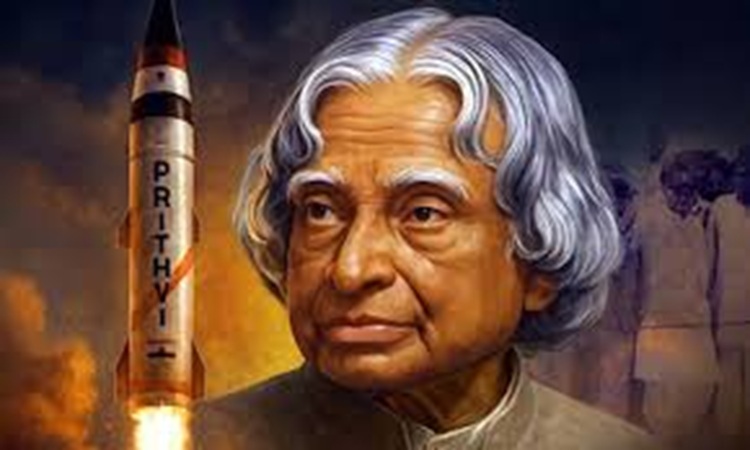Celebrating Dr. APJ Abdul Kalam, The Man Who Taught India to Dream Big

A few days ago, a quiet moment swept across India, a moment heavy with memory, pride, and dreams altogether. People across the globe paid tribute to Dr. A. P. J. Abdul Kalam, the man who shaped India in politics, science and education.
It’s strange yet amazing how one person can belong to science, politics, and poetry all at once. How can someone be called a “missile man” yet speak with the tenderness of a teacher? That was Kalam. This man goes beyond his titles and even more than what history can tell.
The Man Who Dreamed in Wings
Kalam was born on October 15, 1931, in Rameswaram, a small island town in Tamil Nadu. His father is a boat owner and his mother, a housewife. His ancestors were wealthy, owning lands, properties and trading goods. However, life took a turn and the family lost their fortune. Kalam was born when the family was wallowing in poverty. As a boy, he sold newspapers not for his own pocket but to support his family. Born into a muslim family, religion was a great part of his life and his family instilled Islamic principles in him right from a young age.
He had a dream and he pursued it, bagging a degree in aeronautical engineering from the Madras Institute of Technology.
Years later, that boy became the force behind India’s missile and space programs. He helped shape the SLV-III, India’s first satellite launch vehicle. He was part of the Pokhran-II nuclear tests.
When people called him “Missile Man,” he’d smile, almost shyly. “I’m just a learner,” he’d say. And you’d believe him. Because humility sat so naturally on him, it never felt rehearsed.
He was the youngest of 5 siblings, one who values relationships and always supports financially. Even though he never married, choosing to rather focus on his career and impacting lives. He wore integrity on his sleeves, and simplicity was his second nature. Never owned a television, enjoyed writing poetry, playing veena, and listening to devotional music every day.
The People’s President
In 2002, India gave him a new role: The President of the Republic. But Kalam didn’t become a politician; he also remained a teacher. He opened the gates of Rashtrapati Bhavan to children and students asking them questions about their dreams, ideas and their plans for the country.
He explained, “I feel comfortable in the company of young people, particularly high school students. Henceforth, I intend to share with them experiences, helping them to ignite their imagination and preparing them to work for a developed India for which the road map is already available.”
While most leaders talk to people. Kalam spoke with them. He believed deeply in young minds and what the power of imagination can do to achieve success and build a nation. “Dream, dream, dream,” he said, “Dreams transform into thoughts, and thoughts result in action.”
And millions did.
He finished his term and went right back to doing what he loved most, teaching. He once said he wanted to die while doing it. And he did. In 2015, while addressing students at IIM Shillong, he collapsed on stage. His final act was teaching just as he had wished.
The Tribute That Never Ends
So, when the nation paused to honor him again this week, it didn’t feel like remembering the past. It felt like remembering purpose.
From Delhi to Chennai, people gathered; students, scientists, teachers, dreamers, to celebrate not just his achievements, but his spirit. Speeches were made, songs were sung, and stories flowed like gentle rain.
At Rameswaram, where his memorial stands by the sea, people lit candles. The wind there always feels different, like it’s carrying something sacred. It’s like hearing his voice whispering “You have to dream before your dreams can come true.”
More Than a Name in a Textbook
Here’s the thing about Abdul Kalam: he wasn’t just India’s 11th President, or a scientist, or a Bharat Ratna recipient. He was a mirror, combining brilliance with kindness.
He never owned much. He lived a simple life and wrote a lot of books that are recognized worldwide. In a world where luxury is seen as powerful, Kalam boldly wears the empty barrel makes the loudest noise. Choosing to live a simple life filled with impact.
A Legacy That Lives On.
Whether it’s a student who dreams about innovation, or a teacher who believes in everyone and encourages children to think differently, that’s Kalam, still at work. He may have died, but his works still live on. In the satellites we send up, in classrooms filled with students brimming with ideas, in every soul that dares to dream.
When people paid tribute to him this week, some called him “Dr. Kalam,” others “Sir,” and a few just said “APJ.” But somewhere, someone whispered what felt truest
“He’s still teaching us.”
And maybe that’s the best tribute of all.




